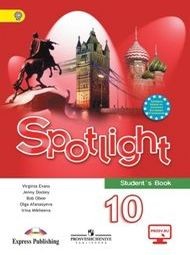
Учебник английского языка для 10 класса, автор – Ваулина, представляет собой увлекательный и структурированный подход к обучению школьников. В нем удачно сочетаются теоретический материал, упражнения для практики и интересные задания, способствующие развитию всех языковых навыков. Это пособие подходит как для самостоятельного изучения, так и для работы на уроках.
ГДЗ по Английскому Языку 10 Класс Модуль 1e Номер 1b Ваулина — Подробные Ответы
b Найдите примеры неформального стиля.
informal greeting: Hi!
informal ending: Lots of love
everyday vocabulary: I’ve been really busy; Thanks
short forms: I’ve; I’d
colloquial expressions: drop you a line; I haven’t written for ages
etc
Informal greeting: Hey there!
Informal sign-off: Best wishes,
Everyday vocabulary: I’ve been swamped; Thanks a lot
Short forms: I’ve; I’d
Colloquial expressions: drop you a message; It’s been forever since I last wrote
Informal Greeting:
A greeting sets the tone for the entire conversation, and when it comes to informal letters or messages, it’s important to keep it light and friendly. Instead of the formal “Dear,” you can use:
«Hi!»
«Hey there!»
«Hello!»
These greetings are simple and approachable, perfect for addressing someone you know well.
Informal Ending:
Just like the greeting, the closing of your letter or message should feel casual. Some good options include:
«Lots of love,»
«Take care,»
«Cheers,»
These endings convey warmth and affection, without being too formal.
Everyday Vocabulary:
Informal letters or messages often use everyday vocabulary that mirrors natural conversation. Phrases like:
«I’ve been really busy»
«Thanks a lot»
These are simple expressions that anyone would use in everyday conversations. Instead of the more formal «I have been occupied,» or «I appreciate it greatly,» these phrases sound more relaxed and relatable.
Short Forms (Contractions):
Contractions are commonly used in informal writing because they make sentences feel more casual and less stiff. For example:
«I’ve» (I have)
«I’d» (I would)
Shortened forms like these are typical in informal letters or messages, and they help to create a conversational tone.
Colloquial Expressions:
Colloquialisms or informal expressions often appear in friendly writing. These phrases might not be appropriate for formal letters, but they fit perfectly in casual correspondence. Examples include:
«Drop you a line» (meaning to send a message or letter)
«I haven’t written for ages» (a playful way of saying it’s been a long time since writing)
These expressions make the writing sound more personal and genuine, as though you’re speaking to the recipient directly.



Оставь свой отзыв 💬
Комментариев пока нет, будьте первым!